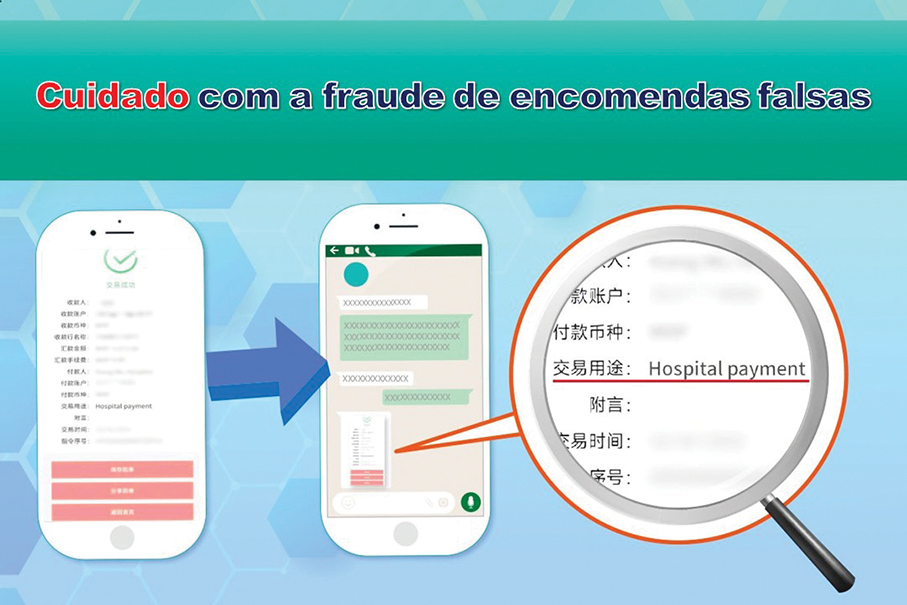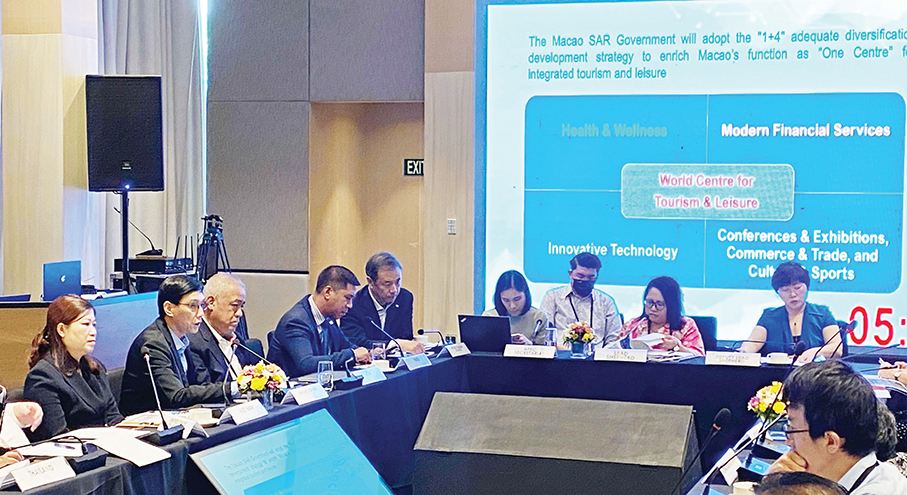The Judiciary Police (PJ) said in a statement yesterday that they have received reports from the persons in charge of a bookshop and a pharmacy saying that that they received calls from scammers pretending to be “staff members” of the private Kiang Wu Hospital ordering a large number of books or medical equipment from the shops concerned.
The scammers also sent purported confirmations of their respective payment transfers to the shops.
According to the statement, after the fraudsters received the goods and had purportedly paid for the orders from the two shops, they then asked both shopkeepers to transfer money to a designated "supplier" to order goods outside the normal scope of their sales, such as asking the bookshop staff to order disinfectant at a special price, claiming that the shopkeeper could earn the difference. The scammers again sent a fake "transfer screenshot" of the payment to the shopkeeper, claiming that the payment had been made.
However, after checking their bank records, both shopkeepers discovered that the money had not arrived for the initial order nor any subsequent ones, and thus discovered the scam.
The statement also said that since last year there have been a number cases of fraudulent bank transfer screenshots to entice merchants to order the traditional "The Buddha Jumps Over The Wall" dish, red wine, tinned beef, furniture, and other products.
The PJ Anti-Fraud Coordination Centre once again urged merchants to be vigilant, adding that if they receive similar calls, they should first verify them through reliable channels, especially if they have received a remittance screenshot, in which case they should first verify whether the money has actually arrived, the statement said.
Residents may call the PJ crime report hotline on 993 or the anti-scam hotline on 88007777 upon suspecting that they have been defrauded, blackmailed, or victimised in other ways, according to the statement.

This graphic provided by the Judiciary Police (PJ) yesterday warns the public about a Kiang Wu Hospital order scam, urging merchants to always confirm whether the orders they receive are genuine.







